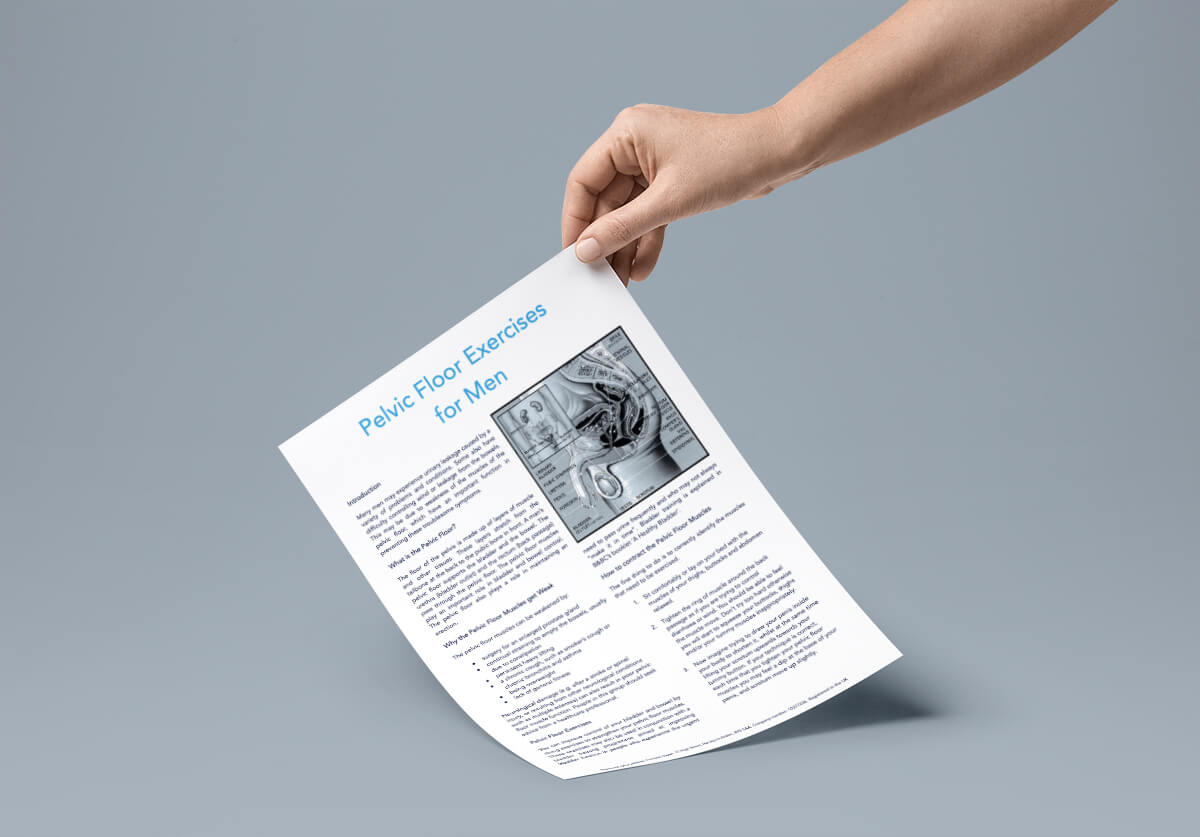Conservative measures are used to improve the symptoms of post micturition dribble including training to tighten the pelvic floor muscles. There is also a technique that can be taught which helps to fully empty the urethra. Currently there isn’t any effective drug or surgical treatments for this condition.
Conservative Treatments
Pelvic Floor Exercises
Weak pelvic floor muscles is the most common reason for post micturition dribble but it is possible to tighten these muscles by performing a set of exercises. The pelvic floor muscle stretches from the pubic bone to the coccyx and helps to support the bladder and the rectum in men. It can become weakened after prostate surgery, if you have a persistent cough, are overweight or suffer frequently from constipation. Like any other muscles it is important to exercise it. Download our Pelvic Floor information guide to find out how to perform these simple exercises.
Pelvic Floor Exercises For Men
[BBC:030] Pelvic Floor Exercises For Men
Training your pelvic floor muscles can help improve your bladder control and this is as important for men as it is for women. Read our Guide.
How To Empty The Urethra
Some people find it helpful to manually push the last few drops of urine from their urethra. Follow the steps below
- After passing urine, wait for a few seconds to allow the bladder to empty
- Place the fingertips of the left hand three finger-breadths behind the scrotum and apply gentle pressure
- Keeping the pressure in the mid line, gently but positively draw the fingers forwards towards the base of the penis under the scrotum
- This pushes the urine forward into the penile urethra from where it can be emptied by shaking or squeezing in the usual way
- Before leaving the toilet, repeat the technique twice to ensure that the urethra is completely empty
This technique can be practiced at home. When in public toilets it can be done discreetly, with a hand inside a trouser pocket. It only takes a few seconds and may avoid the problem of wet trousers.
Further Information
Further information and downloads can be found in the help and information section.
Having a bladder or bowel condition can feel isolating – being able to talk to someone who shares your experiences can be a great help and a great relief – you are not alone.
This support group is a closed group and monitored regularly by admins to make this space as safe and welcoming as possible for all members.
If you are looking to share stories, experiences or just simply chat with others with a bladder and/or bowel condition then head over to Bladder & Bowel Community Support Group on Facebook.









